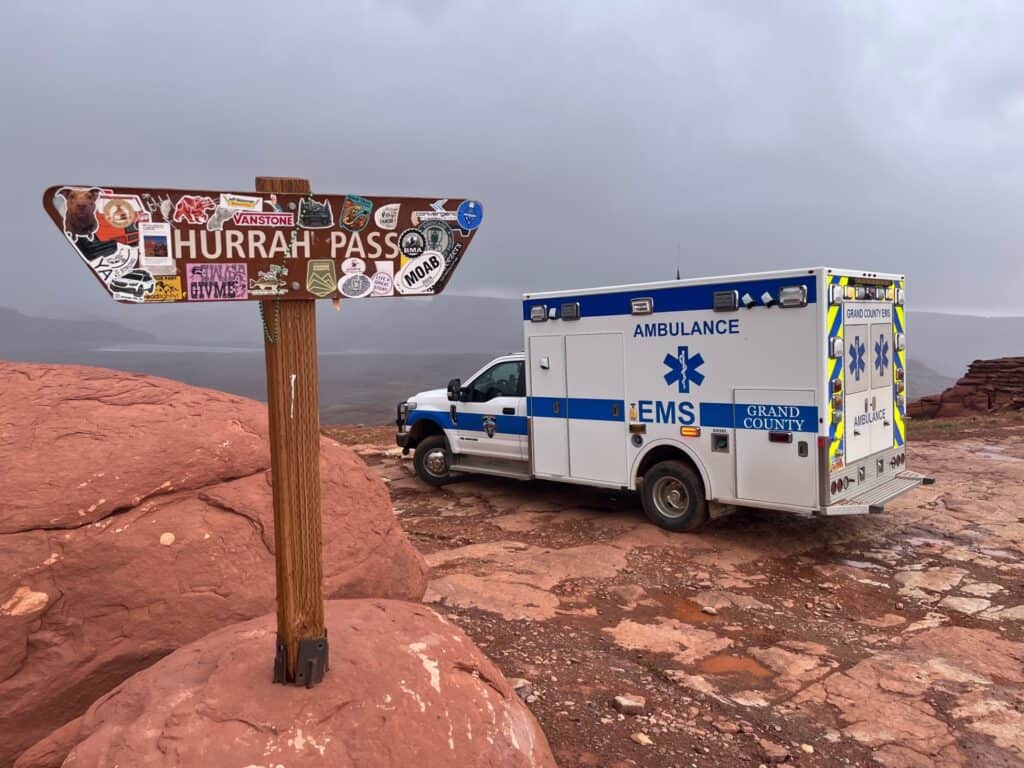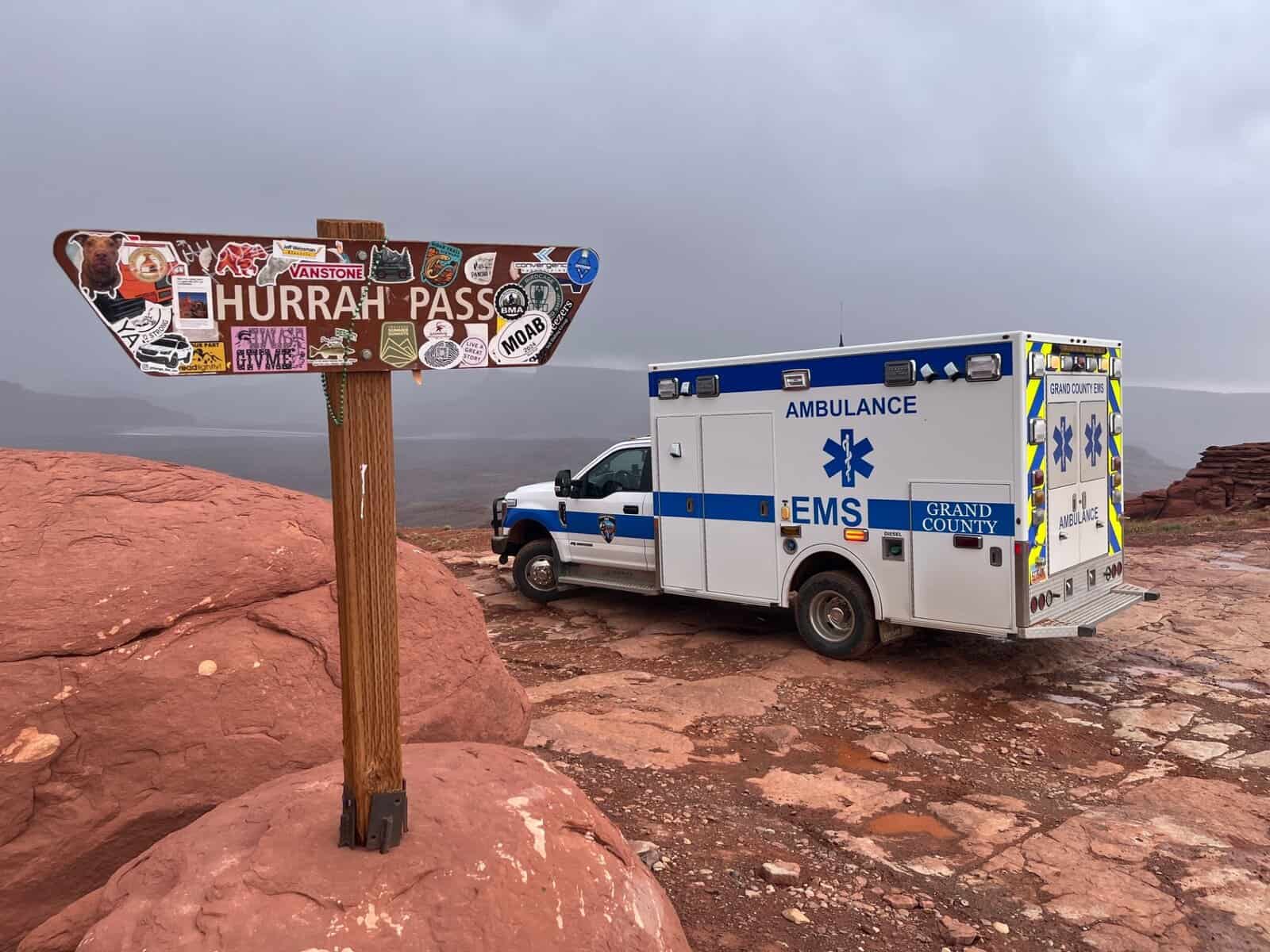In an urgent move to maintain emergency medical services in Grand County, commissioners voted nearly unanimously to approve a $350,338 emergency funding request for Grand County Emergency Medical Services during Tuesday’s commission meeting.
EMS Executive Director Andy Smith revealed that without immediate financial support, the agency would be unable to maintain current service levels beyond early April, just weeks away.

“We’ve got to find some funding to move forward or we have to make some significant cuts,” Smith told commissioners during his presentation. “We believe $355,000 would get us through the year based on the numbers right now.”
Smith said that revenue derived from sales tax was down for the year while the department faced a tight budget.
Grand County EMS, which operates with just five ambulances and 34 field providers, covers a service area “the size of Rhode Island and Delaware put together,” Smith said.
“We had to grow fast,” Smith explained, “and now we have to try to stabilize.”
Smith indicated that the agency experiences seasonal revenue fluctuations, with higher income during busy tourism months that traditionally helps fund operations during slower periods.
“When we hit July, we have about three or four months where we make more than our expenses,” Smith said.
Grand County EMS gets income from various sources, including billing insurance and Medicaid for services, income from sales tax, state mineral lease revenue, contributions from local government and other sources.
Smith said that the number of calls is still 16% above 2019, but has decreased each year since a peak during COVID-19.
Smith acknowledged that if the number of emergency calls continues to decrease, cutting an ambulance is the right idea longterm.
During the discussion, commissioners expressed concerns about long-term sustainability while acknowledging the critical nature of emergency services.
Commissioner Trish Hedin emphasized the need for a sustainable solution rather than repeated emergency requests.
“If we put a band-aid on this now, what’s next?” Hedin said, suggesting the development of a comprehensive plan “within the next couple of months for next year rather than coming back for another emergency meeting.”
Commissioner Mary McGann highlighted the agency’s efforts to increase compliance from neighboring jurisdictions, noting that San Juan County has historically relied on Grand County’s services without adequate financial contribution.
“Twenty-two percent of their calls are in San Juan County,” McGann pointed out.
Smith said that he was trying to work with other county’s EMS services to increase their own staffing so they can respond to emergencies without relying on Grand County, specifically mentioning the city of Green River in Emery County.
“We’ve done everything we can to not respond [to out-of-county calls] unless it’s a true emergent situation,” said Smith.
The commission voted 6-0 to approve the full funding request, with Commissioner Jacques Hadler abstaining.
“We should be funding essential Services firstThe commission discussed potential long-term solutions, including exploring new transient room tax legislation that might provide additional funding avenues, conversations with Moab Regional Hospital about possible partnerships, and more formalized agreements with San Juan County to address cross-jurisdictional service.
“In our budgeting process, we should be funding essential services first,” said Commissioner Brian Martinez.
Commissioners directed EMS leadership to develop a more sustainable funding model for discussion during upcoming budget sessions while ensuring that current service levels remain uninterrupted through the emergency funding measure.
“I’m not the guy that’s going to stand up here and say people are going to die, people are going to die,” said Smith. “but we do have to have a true conversation about how we fund these services longterm.”
Appreciate the coverage? Help keep local news alive.
Chip in to support the Moab Sun News.





